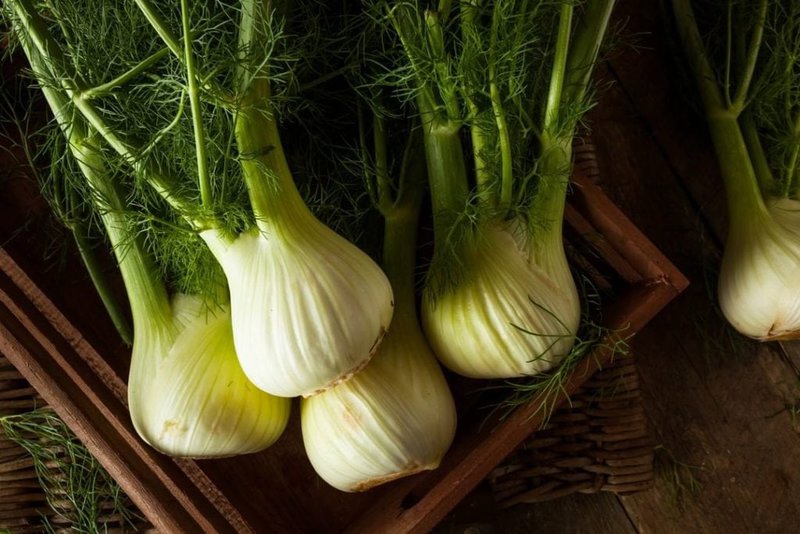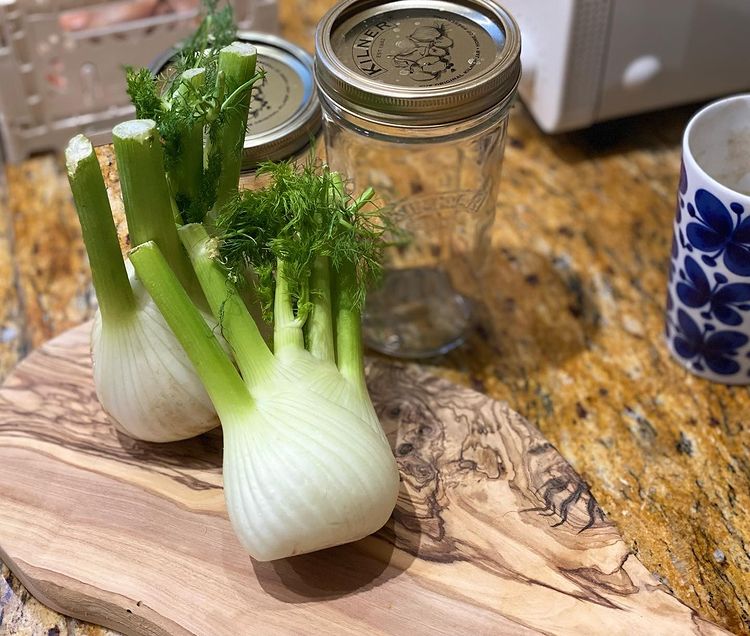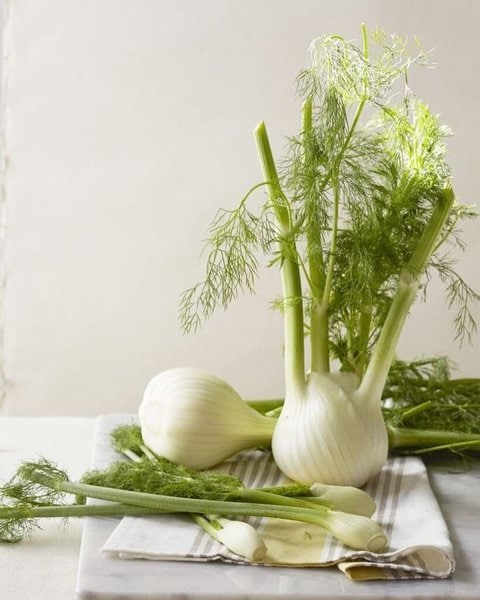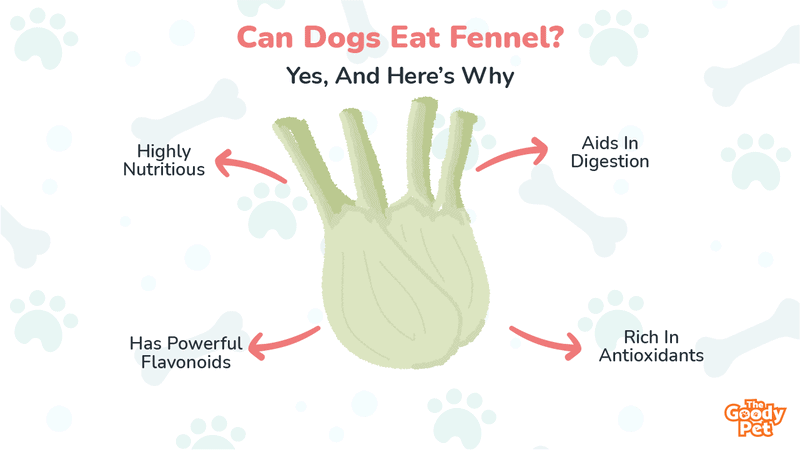Fennel, or Foeniculum vulgare, is a flowering plant that belongs in the same family as carrots, celery, and parsley, known for its mild and delicate licorice flavor. But is it safe for your dogs?
Yes, fennel is perfectly safe for your dog. Raw or cooked, fennel can be a great additive to your dog’s diet. And in fact, some commercially available dog foods already incorporate fennel in their ingredients.
Fennel has two main varieties. The first one is Sweet Fennel, which is mainly used as a spice for its seeds. The second variety is the Florence Fennel, or finocchio, which is the popular vegetable used for cooking with its crisp bulbous base.
In this article, we will discuss the natural health benefits of this herb, as well as ways you can add it to your dog’s diet.
Can Dogs Eat Fennel?

Yes, the fennel plant, including the seeds, offers a variety of nutritional benefits with minimal calories.
Here are three reasons why you should consider adding some fennel to their diet.
Loaded With Antioxidants And Beneficial Compounds
Fennel contains polyphenol antioxidants, like rosmarinic acid, chlorogenic acid, and quercetin, that act as anti-inflammatory agents and protects cells from free radicals.
These compounds essentially prevent your dog from developing cancerous cells and other chronic diseases, such as heart disease and diabetes.
It is also a good source of vitamins A and C that functions as an anti-oxidant as well by protecting against cell damage, repairing tissues, collagen synthesis, and overall immunity.
Aside from anti-oxidants, fennel also has powerful flavonoids, like anethole and fenchone, and a host of other beneficial compounds that have anti-inflammatory, anti-bacterial, and anti-fungal properties.
Highly Nutritious
Fennel also provides essential vitamins and minerals, such as magnesium, potassium, manganese, calcium, iron, vitamin B6, and K.
Vitamin B6 is an important component of many chemical reactions in your dog’s body, including energy metabolism, brain development, and hormone regulation.
Vitamin K aids in the coagulation of proteins needed for blood clotting and helps in bone healing and skin inflammation.
Trace minerals, such as magnesium, are involved in energy production in the cells, while manganese plays a key part in many enzymes for metabolism.
The electrolyte potassium regulates fluid balance, nerve and heart signals, and muscle contractions. Iron helps in the transportation of oxygen in the bloodstream.
And, as we all know, calcium contributes to healthy teeth and bones.
Aids In Digestion
Fennel helps in the secretion of enzymes in the stomach that facilitates the digestive process.
It also has a strong antispasmodic effect that prevents spasms, bloating, flatulence, and constipation.
The presence of fiber promotes the regularity of bowel movement as well.
Plus, did you know that fennel fights bad breath? Chewing on a piece of raw fennel can help your dog freshen its breath, for it neutralizes offensive odors in the mouth.
Fennel also increases saliva production that would eliminate bacteria.
How Do I Prepare Fennel For My Dog?

Before adding fennel to your dog’s diet, it is important to remember that vegetables and fruits should not comprise more than 10% of your dog’s daily caloric intake.
Its regular food should be enough to give your pooch the necessary nutrients for the body, and additional vegetables, like fennel, should only be given as occasional treats.
When first giving fennel to your dog, it is recommended to start with small portions first.
Almost all parts of the fennel plant are edible for your dog. These parts are the bulb, stalk, feathery fronds, as well as seeds. You can give it raw or cooked and choose a fennel that is firm with fresh tops.
Make sure to wash it thoroughly first when served raw.
The bulbous base can be chopped into small pieces and can be added to their regular meal or given as a crunchy treat.
The stalk can be a little bit tougher than the base to be served raw, but it can be steamed or microwaved.
On the other hand, the fronds can be chopped and sprinkled onto your dog’s meal.
Some dog owners would make tea from fennel seeds. The sweet fennel is usually the variety used for this purpose and chooses the organically grown fennel to avoid any pesticide residues.
Add a teaspoon of fennel seeds in 8 oz of boiled water and let it steep for about 5 to 10 minutes. Strain and let it cool.
Recommended serving is 2 to 4 teaspoons added to their water bowl for every 20 lbs of your dog’s body weight. If you notice your dog having diarrhea, decrease the steeping time or the number of teaspoons.
Does Fennel Seed Hurt Dogs?
Yes and no. Fennel seeds can be used as a flea treatment. On the other hand, fennel seeds can be harmful to pregnant dogs.
Fennel Seeds As A Flea Treatment
Yes, fennel can also be used as a home remedy for your dog’s fleas because of the compound anethole, which has insecticidal properties.
Seeds can be crushed and rubbed on their coats, or they can be steeped first in hot water and used as a rinse.

Fennel Seeds And Pregnant Dogs
As we’ve seen earlier, fennel seeds are safe but not if your dog is pregnant.
It’s best to avoid giving fennel to a pregnant and lactating mother because too much fennel may cause an upset stomach. This is because of the high volatile oil levels of fennel, especially the seeds.
Also, some dogs may have an allergic reaction to the herb, so it is best to try it out first in small portions. Giving them too much of it may also cause diarrhea or stomach upsets.
It is always recommended to ask your veterinarian when introducing new foods to your dogs.





